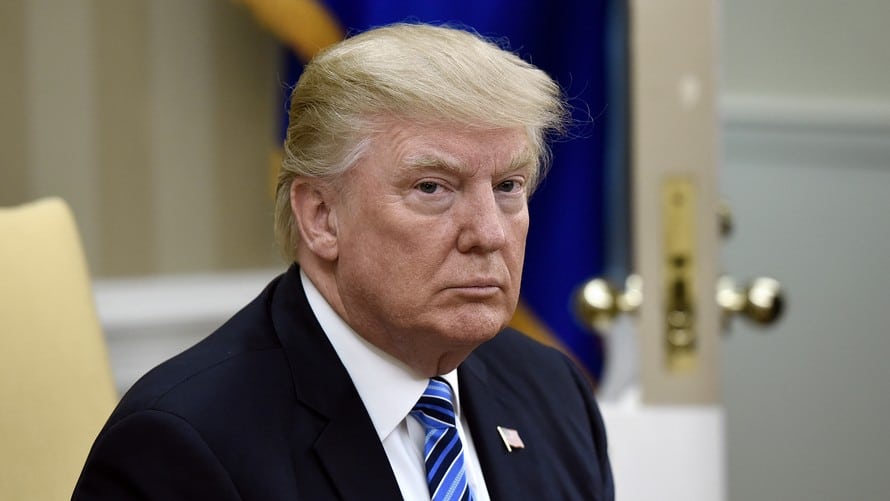
Corporate earnings and the economy still carry more weight with investors than President Donald Trump’s mounting legal woes.
Trump suffered arguably the worst day of his presidency on Tuesday as Michael Cohen, his former personal attorney, pleaded guilty to a number of charges and said he had acted at Trump’s behest to make hush payments to two women in violation of campaign finance laws. The same day a federal jury convicted former Trump campaign manager Paul Manafort on tax and bank fraud charges.
But the legal turmoil caused barely a ripple on Wall Street. Stocks batted between small gains and losses, with the S&P 500 SPX, -0.04% ending less than 0.1% lower and trading not far below its all-time high, while the Dow industrials DJIA, -0.34% shed 0.3%.
While the latest turn appeared to boost the threat of impeachment, investors remained focused on an economy that’s growing at an annualized clip of near 4%, while the unemployment rate stands at less than 4%, said Greg Valliere, chief global strategist at Horizon Investments, in a note.
“If the trade wars cool off a little this fall, we still think stocks can grind higher,” he said. “It’s not a pretty picture here in Washington, but as long as Trump doesn’t go totally off the rails, investors can compartmentalize.”
So far, it’s another chapter in the story of a stock market that’s proven resilient in the face of developments surrounding Trump’s legal woes. Stocks are up around 20% since Robert Mueller was appointed special counsel in May 2017 to investigate possible collusion between the Trump campaign and Russia during the 2016 presidential election campaign, noted Oliver Jones, economist at Capital Economics.
For that matter, Jones, a market bear, puts little emphasis on the prospect of political or legal turmoil.
“Overall…we think that the influence of politics will remain small,” said Jones. “Our forecast that the S&P 500 will fall sharply by the end of next year is instead rooted in our downbeat assessment of the outlook for the U.S. economy and corporate earnings.”
The economist, in the charts below, highlighted how the troubles surrounding Richard Nixon, who resigned the presidency in 1974 rather than face impeachment over the Watergate scandal, and Bill Clinton, who was impeached by the House in 1998 but acquitted by the Senate, had relatively little impact on equities.
While the S&P 500 slumped during the heart of the Watergate affair, which culminated with Nixon’s resignation in August 1974, the index had been under pressure since January 1973, he said, noting that the decline coincided with the first oil-price shock, which pushed the U.S. into recession.
Meanwhile, Clinton’s troubles did little to blunt a bull market, with the S&P 500 climbing 30% between the scandal breaking in January 1998 and the defeat of articles of impeachment in the Senate in February 1999, Jones noted.
Jones cautioned against completely ruling out the influence of politics, however, noting that the S&P 500 did accelerate gains following Trump’s 2016 presidential election victory and has occasionally reacted to Trump’s statements on trade and the Federal Reserve.
If the latest developments “materially influence the outcome of November’s midterm elections, the path of trade policy could conceivably change,” he said. “This in turn might plausibly have a greater bearing on the S&P 500, though the index has generally shrugged off worries about protectionism so far.”
























